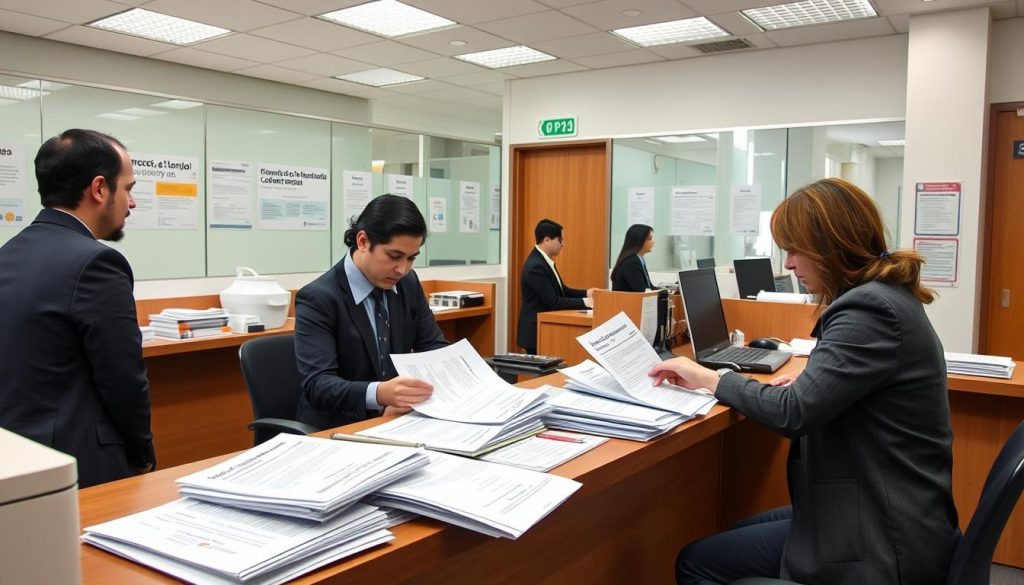Spain has emerged as an attractive destination for entrepreneurs seeking to establish businesses within the European Union. With its strategic location bridging Europe and Latin America, robust infrastructure, and growing startup ecosystems in cities like Barcelona and Madrid, Spain offers compelling opportunities for business ventures. However, navigating the Spanish business landscape requires understanding both its advantages and challenges. This comprehensive guide examines whether Spain is truly a good place to start a business, providing you with essential insights to make an informed decision about your entrepreneurial journey in this dynamic Mediterranean nation.
Spain’s Business Environment: Economic Overview
Understanding Spain’s current economic landscape is essential for any entrepreneur considering starting a business in this diverse European nation. After weathering significant challenges during the global financial crisis, Spain has demonstrated remarkable resilience and growth in recent years.
Barcelona’s business district – a hub for international entrepreneurs
Economic Stability and Growth Prospects
Spain’s economy has shown steady recovery and growth in recent years. According to the Bank of Spain, the country recorded a GDP growth of 2.5% in 2023, outpacing the eurozone average of 1.8%. Projections for 2025-2026 remain positive at 2.1%, despite global economic uncertainties. This growth trajectory creates a favorable environment for new businesses entering the market.
The unemployment rate, while historically high compared to other EU nations, has been steadily decreasing, reaching 11.7% in early 2025 – a significant improvement from the 26% peak during the financial crisis. This trend indicates an improving labor market with increasing consumer purchasing power.
EU Membership Benefits for Businesses
As a full member of the European Union, Spain offers entrepreneurs significant advantages:
- Access to the EU single market of over 450 million consumers without customs barriers
- Free movement of goods, services, capital, and labor across EU borders
- Participation in EU trade agreements with non-EU countries
- Access to EU funding programs and business development initiatives
- Regulatory alignment with European standards, facilitating cross-border operations
Strategic Geographic Position
Spain’s location provides unique strategic advantages for international businesses:
European Gateway
Spain serves as an ideal entry point to European markets, with excellent infrastructure connecting to major EU economic centers.
Latin American Connections
Strong historical, cultural, and linguistic ties with Latin America position Spain as a natural bridge for businesses targeting both European and Latin American markets.
Need expert guidance on Spain’s business landscape?
Our team of business consultants can provide personalized insights into Spain’s economic environment and help you evaluate market opportunities for your specific business idea.
Key Advantages of Starting a Business in Spain
Spain offers numerous competitive advantages that make it an attractive destination for entrepreneurs and investors. Understanding these benefits can help you leverage Spain’s business ecosystem effectively when starting a business in Spain.

Madrid’s thriving coworking spaces foster innovation and collaboration
Tax Incentives and Financial Benefits
Spain has implemented several tax incentives designed to attract foreign investment and support new businesses:
- Reduced Corporate Tax Rates: New companies benefit from a reduced corporate tax rate of 15% (compared to the standard 25%) for the first two years of profitable activity.
- R&D Tax Credits: Businesses can claim up to 42% tax deduction on research and development activities, one of the most generous R&D incentive schemes in Europe.
- Startup Law Benefits: The 2023 Startup Law introduced additional tax advantages for qualifying innovative startups, including further reduced tax rates and stock option benefits.
- Regional Incentives: Many autonomous regions offer additional tax breaks and subsidies for businesses establishing operations in their territories.
- Patent Box Regime: Companies can benefit from a 60% reduction on net income derived from certain intangible assets.
Skilled and Competitive Workforce
Spain boasts a well-educated workforce with competitive labor costs compared to other Western European nations:
Education and Skills
Spain has over 80 universities producing highly qualified graduates, particularly in engineering, business, and technology fields. The country ranks high in STEM education, with a growing emphasis on digital skills development.
Multilingual Talent
Major business centers like Madrid and Barcelona attract international talent, creating diverse workforces with multilingual capabilities. English proficiency continues to improve, especially among younger professionals.
According to recent labor market data, average salaries in Spain remain 15-30% lower than in countries like Germany, France, or the UK, offering a competitive advantage for businesses while still attracting quality talent.
Thriving Startup Ecosystems
Spain has developed vibrant startup ecosystems in several cities, with Barcelona and Madrid leading the way:
| City | Key Strengths | Notable Resources | Investment Activity (2023) |
| Barcelona | Tech innovation, mobile technologies, biotech | Barcelona Tech City, Pier01, Mobile World Capital | €826 million |
| Madrid | Fintech, enterprise solutions, corporate innovation | Madrid Emprende, Google Campus, South Summit | €741 million |
| Valencia | Agritech, sustainability, creative industries | Valencia Startup Capital, Las Naves | €198 million |
| Málaga | Digital nomad hub, cybersecurity, tourism tech | Málaga TechPark, Digital Content Hub | €157 million |
These ecosystems provide entrepreneurs with access to incubators, accelerators, coworking spaces, networking events, and a growing community of investors focused on early-stage businesses.
“Spain has transformed into one of Europe’s most dynamic startup hubs. The combination of talent, quality of life, and improving access to capital makes it particularly attractive for innovative businesses looking to scale across Europe and beyond.”
Quality of Life and Business Costs
Spain consistently ranks high in quality of life indexes, offering entrepreneurs a balanced lifestyle alongside reasonable business costs:
- Lower cost of living compared to Northern European business centers
- Excellent healthcare system ranked among the world’s best
- Favorable climate and rich cultural offerings
- Competitive commercial real estate costs (30-50% lower than Paris or London)
- Well-developed digital and physical infrastructure
Maximize Spain’s business advantages
Our specialized consultants can help you identify and leverage the most relevant incentives and opportunities for your specific business model in Spain.
Challenges When Starting a Business in Spain
While Spain offers numerous advantages, entrepreneurs should be aware of several challenges that may impact business operations. Understanding these potential obstacles is crucial for developing effective strategies when starting a business in Spain.

Navigating administrative procedures remains a challenge for new businesses
Advantages
- Strategic EU location with access to 450M+ consumers
- Attractive tax incentives for new businesses
- Lower operational costs than Northern Europe
- Growing startup ecosystems with support networks
- High quality of life attracting international talent
Challenges
- Complex bureaucratic procedures
- Language barriers in administrative processes
- Rigid labor laws with high dismissal costs
- Regional variations in regulations
- Slower payment culture affecting cash flow
Bureaucratic Complexity
Spain’s administrative procedures for business formation and compliance can be time-consuming and complex:
- Multiple steps involving different government agencies
- Average time to establish a limited liability company (S.L.) is 12.5 days, compared to the OECD average of 9 days
- Documentation often requires notarization and in-person submissions
- Frequent regulatory changes requiring ongoing compliance adjustments
- Digital processes are improving but not yet fully implemented across all agencies
Expert Insight: “The bureaucratic process in Spain has improved significantly in recent years, but foreign entrepreneurs should still budget additional time and consider professional assistance to navigate the system efficiently. What might take a week in some countries can take several weeks in Spain, particularly for non-EU citizens.”
Labor Laws and Employment Considerations
Spain’s labor market is characterized by protective regulations that can present challenges for employers:
- Rigid dismissal procedures with relatively high severance costs (typically 20-33 days of salary per year worked)
- Mandatory collective bargaining agreements in many sectors
- High employer social security contributions (approximately 30% of gross salary)
- Detailed compliance requirements for employment contracts and workplace conditions
- Restrictions on flexible working arrangements, though these are gradually modernizing
Regional Cultural and Regulatory Differences
Spain’s autonomous community structure creates regional variations that businesses must navigate:
Cultural Variations
Business practices, consumer preferences, and working styles can differ significantly between regions like Catalonia, Madrid, Andalusia, and the Basque Country. Local cultural understanding is essential for effective operations.
Regulatory Differences
Each autonomous community maintains certain regulatory powers, resulting in different licensing requirements, local taxes, and business incentives. This can complicate operations for businesses with multiple regional locations.
Language Barriers
While English proficiency is improving in business circles, language can still present obstacles:
- Official documentation is primarily in Spanish (Castilian)
- Some regions require additional language considerations (Catalan in Catalonia, Basque in Basque Country, etc.)
- Administrative procedures often require Spanish language proficiency
- Business relationships, particularly with smaller companies or public sector entities, may require Spanish language skills
Navigate Spanish bureaucracy with confidence
Our experienced consultants can guide you through complex administrative procedures, helping you avoid common pitfalls and delays when establishing your business in Spain.
Step-by-Step Guide to Registering a Business in Spain
Understanding the specific steps required for starting a business in Spain is essential for a smooth establishment process. This comprehensive guide outlines the key procedures for foreign entrepreneurs.
The 8 essential steps for registering a business in Spain
1. Obtain a NIE (Foreigner’s Identification Number)
Every foreign entrepreneur must obtain a NIE before conducting business activities in Spain:
- Application methods: Apply through Spanish consulates abroad or at immigration offices (Oficina de Extranjeros) in Spain
- Required documents: Passport, completed EX-15 form, justification for NIE request, payment of fees (approximately €10)
- Processing time: 1-3 weeks depending on location and application method
Important: The NIE is your tax identification number in Spain and is required for all official transactions, including opening bank accounts, signing contracts, and registering with tax authorities.
2. Choose Your Business Structure
Select the most appropriate legal structure based on your business needs:
| Business Structure | Key Characteristics | Capital Requirements | Liability | Best For |
| Autónomo (Self-employed) | Simplest form, minimal formalities | None | Unlimited personal liability | Freelancers, solo entrepreneurs, small-scale operations |
| Sociedad Limitada (S.L.) | Most common company type, flexible structure | €3,000 minimum | Limited to capital contribution | Small to medium businesses, multiple shareholders |
| Sociedad Anónima (S.A.) | More complex, suitable for larger operations | €60,000 minimum (25% paid initially) | Limited to capital contribution | Large businesses, public trading potential |
| Branch Office | Extension of foreign company | None specific | Parent company bears liability | Foreign companies testing Spanish market |
3. Reserve Your Company Name
For limited companies (S.L. or S.A.), you must obtain a name clearance certificate:
- Submit 3-5 preferred company names to the Central Mercantile Registry (Registro Mercantil Central)
- Pay the required fee (approximately €20)
- Receive the Certificate of Uniqueness (Certificación Negativa del Nombre) within 3-5 business days
- Note that the certificate is valid for 3 months, with one possible extension
4. Open a Business Bank Account
Establish a corporate bank account to deposit initial capital and manage business finances:
- Select a Spanish bank (major options include Santander, BBVA, CaixaBank, Sabadell)
- Prepare required documentation: NIE, passport, company name certificate (for companies)
- Deposit the minimum capital for your business structure (€3,000 for S.L., €15,000 for S.A.)
- Obtain a bank certificate confirming the deposit, required for the notary
5. Draft and Sign the Deed of Incorporation
Create and notarize your company’s founding documents:
- Prepare Articles of Association (Estatutos) defining company operations, management structure, and shareholder rights
- Schedule an appointment with a Spanish notary
- Present required documentation: NIE, passport, company name certificate, bank certificate, draft statutes
- Sign the public deed of incorporation before the notary
- Pay notary fees (approximately €500-800 depending on company capital)
6. Obtain a Tax Identification Number (CIF)
Register your company with tax authorities:
- Submit Form 036 to the Spanish Tax Agency (Agencia Tributaria)
- Provide the notarized deed of incorporation and other required documentation
- Receive a provisional CIF initially, which becomes permanent after company registration
- Register for relevant taxes: Corporate Tax, VAT (IVA), Economic Activities Tax (IAE)
7. Register with the Commercial Registry
Complete the official registration of your company:
- Submit the notarized deed and tax registration to the Provincial Commercial Registry (Registro Mercantil Provincial)
- Pay registration fees (approximately €200-400 depending on company capital)
- Wait for processing (typically 1-2 weeks)
- Receive confirmation of registration, at which point your company legally exists
8. Additional Registrations and Permits
Complete final administrative requirements:
- Register with Social Security (as employer if hiring staff, or as self-employed)
- Obtain municipal licenses for your business premises (Licencia de Apertura)
- Register employment contracts if hiring employees
- Apply for industry-specific permits or certifications if required
Streamline your business registration process
Our comprehensive business setup service handles all registration steps, from NIE application to final permits, saving you time and preventing costly mistakes.
Success Stories: International Businesses Thriving in Spain
Examining real-world examples of successful foreign companies and startups in Spain provides valuable insights and inspiration for entrepreneurs considering starting a business in Spain.

International entrepreneurs are finding success across various sectors in Spain
Tech Startups Making Their Mark

Glovo
Founded in Barcelona in 2015 by Oscar Pierre and Sacha Michaud, Glovo has grown into a multinational delivery platform operating in over 20 countries. The company leveraged Barcelona’s tech ecosystem and talent pool to scale rapidly, eventually being acquired for €2.3 billion in 2022.
Key Success Factor: Utilized Spain’s strategic position to expand across Southern Europe and Latin America while benefiting from lower operational costs than Northern European competitors.

Cabify
Founded by Spanish entrepreneur Juan de Antonio, Cabify has become a leading ride-sharing platform across Spain and Latin America. The company established its headquarters in Madrid and has successfully competed with global giants by focusing on local market needs.
Key Success Factor: Adapted its business model to Spanish regulatory requirements while leveraging Madrid’s business infrastructure to attract over €400 million in venture capital funding.

TravelPerk
Founded by British-Israeli entrepreneur Avi Meir, TravelPerk chose Barcelona as its headquarters for its business travel management platform. The company has raised over €300 million and employs hundreds of people across its Spanish operations.
Key Success Factor: Leveraged Barcelona’s appeal to international talent, creating a diverse team from over 40 nationalities while benefiting from Spain’s strategic location for a travel-focused business.
Foreign Companies Establishing Spanish Operations
“Spain offered us the perfect combination of skilled technical talent, competitive operational costs, and a strategic location to serve both European and North African markets. Our decision to establish our Southern European hub in Madrid has exceeded our growth projections by 35%.”
Beyond startups, numerous established international companies have successfully expanded into Spain:
- Amazon: Established major logistics centers across Spain, creating thousands of jobs and investing over €2.5 billion since 2011.
- Google: Opened a Campus for Startups in Madrid, supporting the local ecosystem while expanding its commercial operations in Spain.
- Zalando: The German e-commerce giant established its Southern European hub in Barcelona, citing the city’s digital talent pool as a key factor.
- Microsoft: Invested in data centers and AI research facilities in Spain, collaborating with local universities and tech companies.
Key Lessons from Successful Entrepreneurs
Embrace Local Business Culture
Successful foreign entrepreneurs emphasize the importance of understanding Spanish business culture, including relationship-building, negotiation styles, and decision-making processes. Taking time to develop personal connections has proven crucial for business success.
Leverage Regional Strengths
Companies that align their operations with regional specializations have thrived. For example, tech companies in Barcelona, financial services in Madrid, and tourism innovations in coastal regions have found natural ecosystem advantages.
Utilize Professional Support
Nearly all successful case studies highlight the value of local legal, accounting, and business advisory services, especially during the establishment phase. This professional guidance helps navigate bureaucratic complexities efficiently.
Build International Teams
Companies that combine local Spanish talent with international expertise create powerful synergies. Spain’s quality of life makes it attractive for recruiting international professionals, creating diverse and innovative teams.
Learn from successful business strategies in Spain
Download our comprehensive guide featuring detailed case studies and practical lessons from successful international businesses in Spain.
Resources for Foreign Entrepreneurs in Spain
Spain offers numerous support programs, funding opportunities, and networking resources specifically designed to help foreign entrepreneurs establish and grow their businesses.

Networking events provide valuable connections for foreign entrepreneurs
Government Programs and Incentives
Several official initiatives support foreign business development in Spain:
ICEX Invest in Spain
The official investment promotion agency of Spain provides comprehensive services for foreign investors, including market information, location guidance, and administrative support.
- Free advisory services for foreign investors
- Assistance with regulatory procedures
- Connection to regional investment agencies
- Aftercare services for established businesses
ENISA Entrepreneur Loans
The National Innovation Company (ENISA) offers participative loans specifically designed for innovative startups and growing companies, including those founded by foreign entrepreneurs.
- Loans ranging from €25,000 to €1.5 million
- No guarantees or collateral required
- Interest rates linked to company performance
- Repayment periods of 4-9 years with grace periods
CDTI Innovation Funding
The Center for Industrial Technological Development (CDTI) provides funding for technology-based companies and R&D projects, with programs accessible to foreign entrepreneurs operating in Spain.
- Partially refundable loans for R&D projects
- Direct grants for innovation initiatives
- International technology cooperation support
- Equity investment through INNVIERTE program
Regional Support Programs
Spain’s autonomous communities offer additional resources tailored to their economic priorities:
| Region | Key Programs | Focus Areas | Contact Information |
| Catalonia | ACCIÓ, Catalonia Trade & Investment | Technology, biotech, manufacturing | www.accio.gencat.cat |
| Madrid | Invest in Madrid, Madrid Emprende | Finance, services, digital economy | www.investinmadrid.com |
| Andalusia | Invest in Andalucía, Andalucía Emprende | Agritech, tourism, renewable energy | www.investinandalucia.es |
| Basque Country | SPRI Group, Invest in the Basque Country | Advanced manufacturing, energy, automotive | www.spri.eus |
| Valencia | Invest in Valencia Region, IVACE | Logistics, agrifood, creative industries | www.ivace.es |
Business Incubators and Accelerators
Spain hosts numerous programs specifically designed to support early-stage businesses:
- Wayra (Telefónica): Corporate accelerator with programs in Madrid and Barcelona, offering funding, mentorship, and corporate connections.
- Barcelona Activa: The city’s economic development agency provides incubation spaces, training programs, and startup support services.
- Impact Hub: With locations in Madrid, Barcelona, and other cities, offers coworking spaces and community for impact-focused entrepreneurs.
- Lanzadera: Valencia-based accelerator backed by Juan Roig (Mercadona founder), providing funding and mentorship for early-stage companies.
- Tetuan Valley: Pre-acceleration program in Madrid helping first-time entrepreneurs validate their ideas and build initial prototypes.
Networking and Industry Associations
Building professional connections is crucial for business success in Spain:
Major Business Events
- South Summit (Madrid) – Leading startup and innovation conference
- Mobile World Congress (Barcelona) – Global technology and telecommunications event
- 4YFN (Barcelona) – Startup event focused on mobile technologies
- Spain Startup – South Summit (Madrid) – Entrepreneurship and innovation conference
Business Associations
- Spanish Chamber of Commerce – Official business network with regional chapters
- Spanish Confederation of Business Organizations (CEOE) – Main business association
- Spanish Association of Startups – Represents the interests of emerging companies
- Foreign Chambers of Commerce (American, British, German, etc.) – Support for international businesses
Access Spain’s business support network
Our consultants can connect you with the most relevant programs, funding opportunities, and networking resources for your specific business needs in Spain.
Conclusion: Is Spain the Right Place for Your Business?
After examining the various aspects of starting a business in Spain, it’s clear that the country offers a compelling mix of opportunities and challenges for entrepreneurs. Spain’s strategic location, growing economy, skilled workforce, and quality of life create an attractive environment for business development, particularly for companies looking to access European and Latin American markets.

Spain offers promising opportunities for businesses with the right preparation and strategy
Key Takeaways
Spain Is Particularly Suitable For:
- Tech startups leveraging Spain’s growing innovation ecosystems
- Businesses targeting Southern European or Latin American markets
- Companies in sectors aligned with Spain’s strengths (tourism, renewable energy, agrifood, etc.)
- Entrepreneurs seeking work-life balance alongside business opportunities
- Businesses benefiting from EU market access with lower operational costs
Success Factors to Consider:
- Preparation for administrative processes and bureaucratic requirements
- Cultural adaptation and language considerations
- Understanding of regional differences and opportunities
- Awareness of labor regulations and employment practices
- Utilization of available support programs and professional services
Actionable Recommendations
- Conduct thorough market research specific to your industry and target regions within Spain
- Visit potential business locations to understand local dynamics before committing
- Engage professional advisors with expertise in Spanish business law, taxation, and administration
- Build a local network through industry associations, chambers of commerce, and networking events
- Consider starting with a minimal viable structure (e.g., autónomo) before scaling to more complex business forms
- Explore available incentives and support programs at national and regional levels
- Develop a Spanish language strategy for business operations and customer engagement
- Create a detailed timeline and budget for the establishment process, including contingencies
While Spain presents certain challenges, particularly in terms of administrative procedures and regulatory complexity, these are increasingly being addressed through digitalization initiatives and business-friendly reforms. With proper preparation, professional guidance, and strategic planning, foreign entrepreneurs can successfully navigate these challenges and capitalize on Spain’s numerous advantages.
Ultimately, Spain offers fertile ground for business growth for entrepreneurs who approach the market with realistic expectations, cultural sensitivity, and a willingness to adapt to local business practices. The country’s combination of European infrastructure, competitive costs, and high quality of life creates a compelling proposition for international business ventures with the right preparation and strategy.
Ready to explore your business opportunities in Spain?
Our team of experienced consultants can provide personalized guidance for your specific business needs, helping you navigate the process of starting a business in Spain efficiently and successfully.







